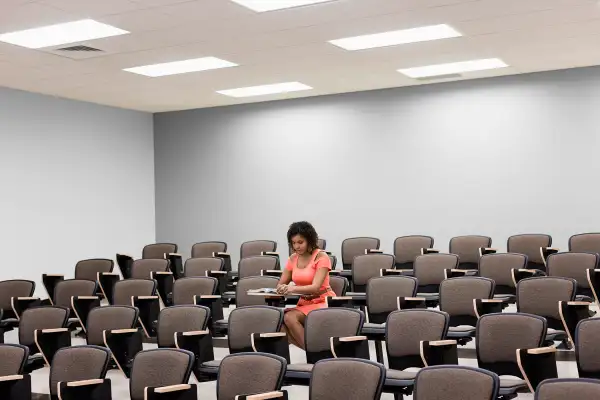African-Americans Most Likely to Attend Low-Quality Colleges

African-Americans disproportionately attend low-quality colleges, which may be one reason that despite an improving economy, they continue to earn less on average than whites, a new research report has found.
Jonathan Rothwell, a researcher at the Brookings Institution, found that while more Americans of all races are attending college, African-Americans were more likely to attend colleges with lower graduation rates, higher student loan defaults, and lower alumni earnings than whites, Asians, or Hispanics. His data were for 2013, the latest year available.
“The first-generation Black and Hispanic students who are going to college are not getting the same high-quality educational experience as their more affluent or socially advantaged peers,” Rothwell wrote.
But, Rothwell noted, other research shows that African-Americans who attend better schools–even if they have similar qualifications as peers attending worse schools–are much more likely to graduate, find a good-paying job, and pay off their student loans. “There is very strong evidence that even less-prepared students do better when they attend higher quality institutions,” he says.
The takeaway: “It’s not just quantity of education. Quality matters,” Rothwell says.

His findings indicate that pushing more students to merely attend college–without regard to the quality of the school - could be a mistake. “Attending one of the worst colleges may not be better than going to no college,” because students tend to borrow, then drop out, leaving them without the education needed to earn a paycheck that will pay off their student loans, he notes. Sending students to low-quality, high cost colleges “will not be enough to reduce income inequality… That gap is likely to persist so long as educational opportunities remain unequal at the earliest levels and throughout” the educational system, he concluded in his report.
Instead, he says, students should attend the very best college possible.
These findings come at a time of growing debates over who should go to which colleges, as well as the causes of continuing income inequality.
Many student groups on campuses around the country, for example, have been holding protests demanding, among other things, more opportunities for minority students.
First Lady Michelle Obama recently posted a rap encouraging all students to aim at college.
Meanwhile, the Obama Administration has been cracking down on expensive, low-performing for-profit colleges, forcing many of them to close.
And the Supreme Court is currently mulling whether it is constitutional for public colleges to consider an applicant’s race during the admissions process. During the oral arguments, Justice Antonin Scalia asked whether underqualified students did better at “slower” schools.
Other researchers criticized some of the assumptions in Rothwell's study, objecting, for example, to his definitions of what makes a college "high quality."
Marybeth Gasman, who directs the University of Pennsylvania's Penn Center for Minority Serving Institutions, says it isn't fair to judge a college's "quality" by the earnings of its alumni because other research has shown that employers are biased against African-Americans. "You can't judge a college by high earnings because of systemic racism" that makes it harder for African-Americans to land good-paying jobs, she says. In addition, it isn't appropriate to call "low-quality" schools that, say, produce many teachers social workers, who provide valuable community services but tend to earn comparatively low paychecks.
Shaun R. Harper, executive director of the University of Pennsylvania's Center for the Study of Race and Equity in Education, objected to linking a school's student loan default rate to its quality. "Default rates can be at least partially explained if the student body is largely coming from lower income families" who can't afford to help a struggling debtor, he says. An alternative point of view might be that high-quality colleges give opportunities to disadvantaged students, he says.
(To make sure you don’t waste your money on a poor-performing college, check out Money’s Best Value Colleges, which are ranked on a combination of educational quality, graduation rates, affordability, and graduates’ financial success - even after accounting for the economic and academic background of students. You can find a school that fits your personality using our Find Your Fit screening tool.)
